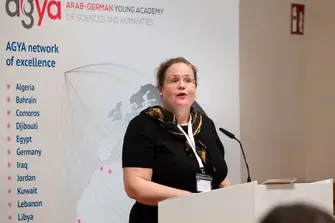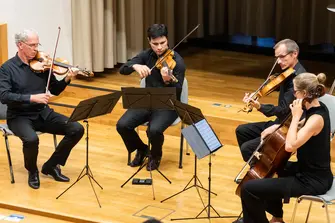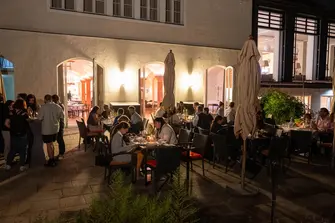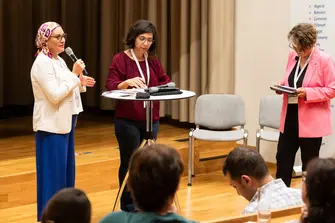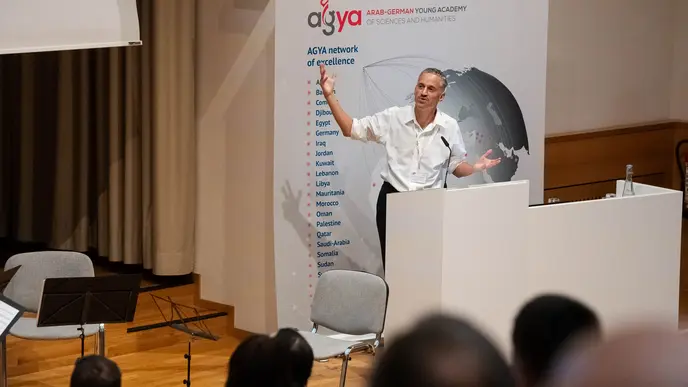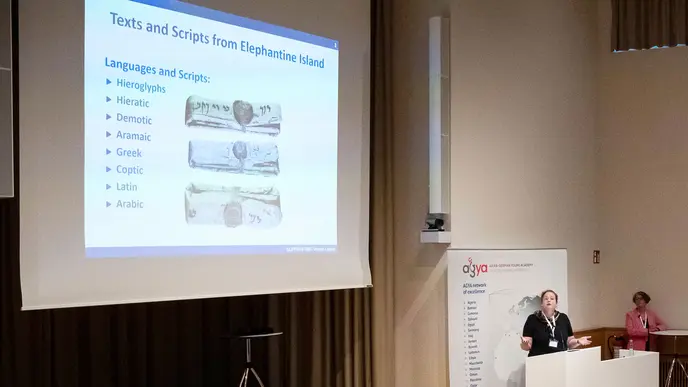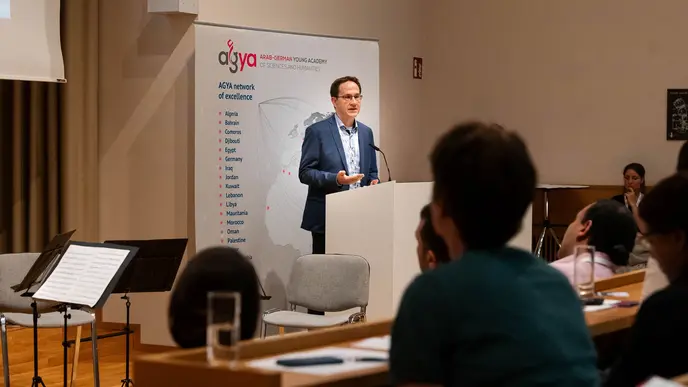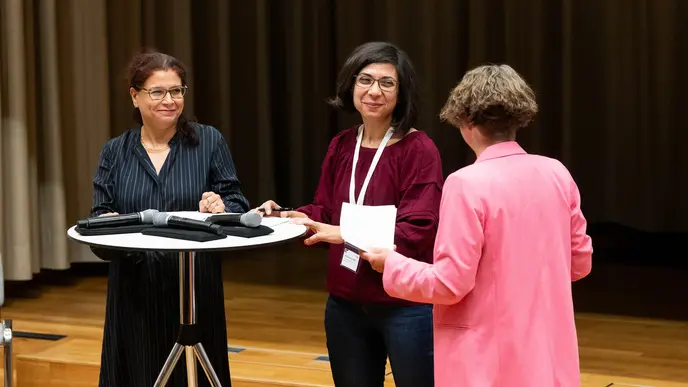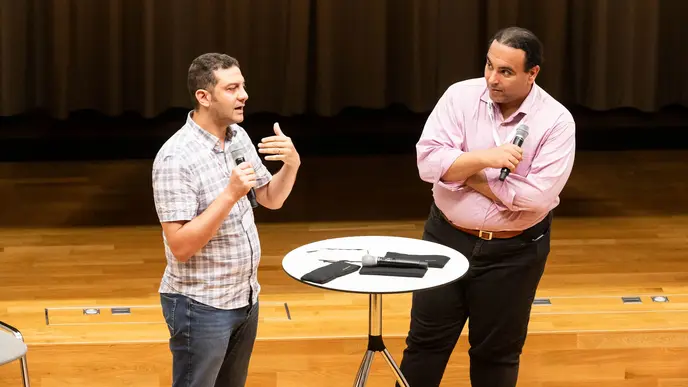Global Berlin in the 21st Century II
What defines Berlin in the 21st century? How has the city evolved under the influence of global dynamics? And how does it wield its own impact in areas that are crucial for our society, such as health, innovation, migration, social transformation and the cultural sector?
AGYA’s ‘Global Berlin in the 21st Century’ approaches these questions from an interdisciplinary Arab-German perspective. The research projects span from the specifics of fatherhood(s) in Arab Berlin families, to the preservation of historical Arab sound recordings, and ancient Egyptian texts in cultural education:
- ’From Phonograph to Web 3.0. Berlin's Historical Sound Recordings from the Arab Regions Context’ (project lead: Dr. Matthias Padszierny & Dr. Nadia Bahra, in cooperation with the Berlin-Brandenburg Academy of Sciences and Humanities)
- ’More than Breadwinners: Arab-German Perspectives on Fatherhood in Berlin’ (project lead: Prof. Dr. Sascha Hein & Dr. Hiba N. Rahja, in cooperation with Freie Universität Berlin)
- ‘Philology and Archaeology in Berlin – Elephantine in Context’ (project lead: Prof. Dr. Verena Lepper & Prof. Dr. Tarek Tawfik, in cooperation with the Prussian Cultural Heritage Foundation)
The Arab-German interdisciplinary research on Berlin as a city of knowledge can provide valuable impulses to make it an even more livable city with model character.
Prof. Dr. Verena Lepper, AGYA Principal Investigator
Berlin as a pioneer place inside and outside of academia
All three interdisciplinary projects offer new insights into Berlin as a centre of research with global significance. To share the project results with policymakers, and an academic and public audience alike, AGYA hosted a festive evening event at the Harnack House in Berlin on 12 September 2023.
The event was opened by AGYA Principal Investigator Verena Lepper who warmly welcomed all guests and set the stage by acknowledging Berlin as a city of high relevance for international research and collaboration and the birthplace of AGYA 10 years ago:
‘In Berlin, the vibrant city we all love, numerous Arab and German AGYA members and alumni/ae work at a wide variety of research institutions and universities. Berlin is unique and a pioneer in pluralism and diversity in the fields of science, arts, and culture, with discourses characterized by openness, and particularly suitable for the Arab academic exile community.’
Matthias Padszierny and Nadia Bahra established a global digital archive network, in which, for the first time, over 100 year-old sound recordings become accessible for research. He provided the audience with some impressions from his research in the Siwa oasis in Egypt as well as a hands-on demonstration of how to use the online archive.
Various aspects of paternal involvement in Berlin families with Arabic backgrounds are explored by Sascha Hein and Hiba N. Rajha. As a contribution to social science family research, the project provides findings into how cultural processes and factors shape fatherhood in Berlin and how social inclusion of families with an Arabic migration history can be promoted in Berlin.
Verena Lepper and Tarek Tawfik explored the archaeological context of papyri discovered on the Nile island of Elephantine. The preserved texts, written on papyrus and clay shards in ten different languages and scripts, including hieroglyphs, Aramaic, Coptic, and Arabic, provide unique insights into 4,000 years of cultural history. By addressing topics such as identity, religion, trade, law, medicine, and everyday life, they also offer new perspectives on highly relevant societal issues. As Lepper pointed out, the island of Elephantine can – just like Berlin – therefore serve as a ‘model for big questions in a small place’.
The audience was also invited to listen to a sound sample from the AGYA podcast ‘Happyopolis’ which explores ideas, concepts and solutions for a healthier, more social, and happier city life. The project was initiated by AGYA alumnus Prof. Dr. Dr. Ahmed N. Hegazy and AGYA members Prof. Dr. Mohammed Alkatan to tackle the challenges of contemporary urban life and investigate innovative concepts to promote urban health and happiness. Fellow AGYA members and alumni/ae as well as international experts contributed to episodes featuring Berlin, Cairo, Hamburg, Kuwait City, and Riyadh.
The presentations were framed by musical intermissions presented by a string quartet led by violinist Thomas Kretschmer from the University of Potsdam. The quartet played three movements from the piece ‘Quatuor A Cordes’ (1934) by German musician Brigitte Schiffer whose work is the subject of several AGYA projects led by Matthias Padszierny, Nadia Bahra, and Dr. Ikram Hili. The harmonious blend of European and Arabic musical traditions was a testament to the collaborative spirit also fostered by this AGYA evening event.
Sneak preview and book talk: Berlin as the capital of Arab exile
In the second half of the evening, moderator Anne Hodgson led through an author’s dialogue on the AGYA volume ‘Arab Berlin: Dynamics of Transformation’ which was edited by AGYA alumna Prof. Dr. Hanan Badr and AGYA member Dr. Nahed Samour.
In a kaleidoscopic concept and a variety of formats ranging from scientific articles and essays to interviews and photo contributions, the book provides Arab perspectives on transformation processes in Berlin. A series of conversations with several contributors gave the audience some very first insights into the volume:
- AGYA alumna Prof. Dr. Hanan Badr & AGYA member Dr. Nahed Samour discussed ‘The Arab and the City’, showing the proximity of the Arab world to Berlin.
- AGYA member Dr. Nahed Samour & Julia Gerlach (Journalist and author, Berlin) presented their thoughts on ‘Berlin Laboratories’.
- AGYA alumna Prof. Dr. Hanan Badr & Eman Helal (Egyptian Photographer, Hamburg) shared their perspectives on ‘Faces of Arab Berlin’.
- AGYA member Dr. Amro Ali & Mahmoud Salem (Public Intellectual, Berlin) engaged in a discussion on ‘The Power of Exile’.
We need to rediscover the city. A city like Berlin offers much more working mechanisms for creating the future than the concept of the nation state.
AGYA member Amro Ali
The panelists highlighted the role of Berlin as the center of Arab Exile with a particular focus on current debates on cultural and social transformation, and explored to what extent change processes taking place in Berlin also have an impact far beyond the city borders, in particular in the Arab world.
The program was followed by a festive networking reception where speakers, AGYA members, alumni and guests engaged in lively conversations on future collaborative research in and on Berlin.
Date and Venue
12 September 2023
Harnack House, Max Planck Society, Berlin
Cooperation and Funding
The project ‘Global Berlin in the 21st Century’ is being carried out with renowned Berlin research institutions and in collaboration with AGYA members and alumni/ae from the Arab world. The project is funded by the Berlin Senate Department for Science, Health and Care.
List of Projects
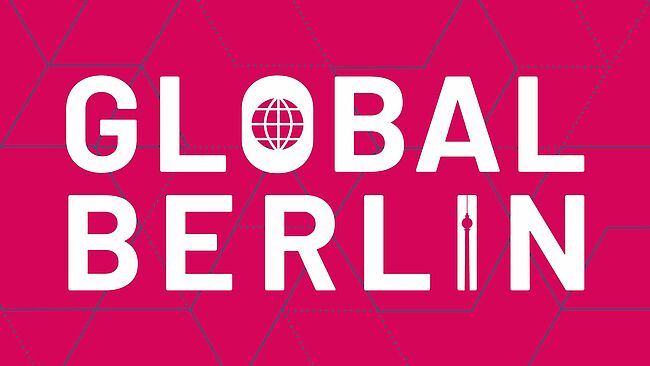
Global Berlin II (2022-2023)
- More than breadwinners: Arab-German perspectives on fatherhood in Berlin, in cooperation with Freie Universität Berlin (project lead: Prof. Dr. Sascha Hein & Dr. Hiba N. Rajha)
- From phonograph to web 3.0. Berlin’s historical sound recordings from the Arab regions, in cooperation with Berlin-Brandenburg Academy of Sciences and Humanities (project lead: Prof. Dr. Matthias Pasdzierny & Dr. Nadia Bahra)
- Philology and Archaeology in Berlin – Elephantine in Context, in cooperation with Prussian Cultural Heritage Foundation, Berlin (project lead: Prof. Dr. Verena Lepper & Prof. Dr. Tarek Tawfik)
Global Berlin I (2021)
- Health and Happiness. Arab-German Perspective on Living Environments in Larger Cities, in cooperation with Charité – University Medicine Berlin (project lead: Prof. Dr. Dr. Ahmed Hegazy & Prof. Dr. Mohammed Alkatan)
- Arab Perspective on Transformation in Berlin, in cooperation with Humboldt University Berlin (project lead: Dr. Nahed Samour & Prof. Dr. Hanan Badr)
- Urban Smart Mobility Concepts in Berlin, in cooperation with TU Berlin (project lead: Prof. Dr. Felix Creutzig, Dr. Philipp Blechinger & Dr. Djamel Djenouri)
- Papyrus to Twitter. New Forms of Museum Presentations in A Digital Age, in cooperation with Prussian Cultural Heritage Foundation, Berlin (project lead: Prof. Dr. Verena Lepper & Prof. Dr. Tarek Tawfik)
Publication: Arab Berlin
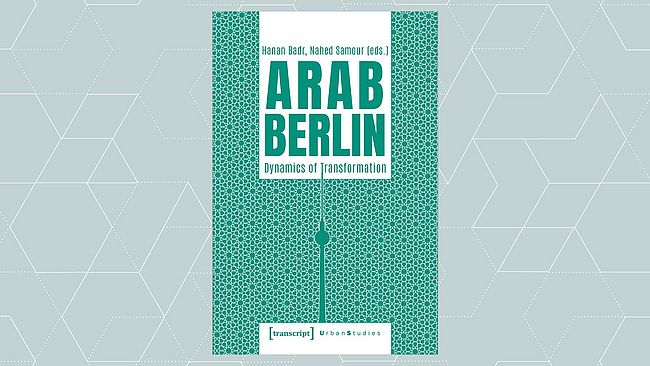
Find out more about this publication here.
Podcast: Happyopolis – Urban health and well-being
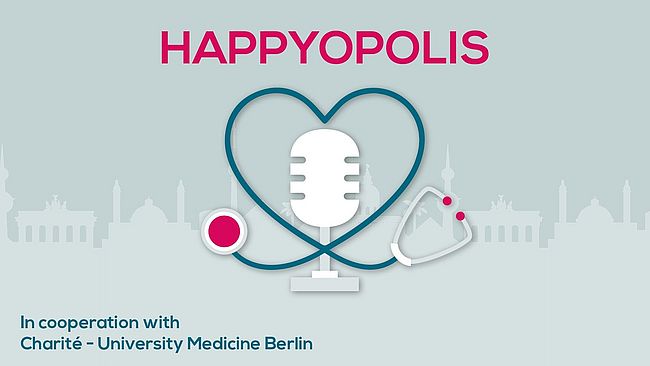
Welcome to the podcast ‘Happyopolis’!
We invite you to join us in exploring how to make city life healthier, more social, and of course, happier.
In each episode, we feature cities across the Arab region and Germany, which have developed ideas, concepts, and solutions for a happy and healthy city life. These are solutions that are not only worth discovering but also worth sharing with your own community. Listen to the episodes here!
